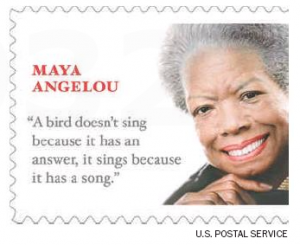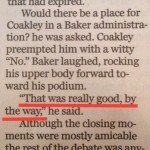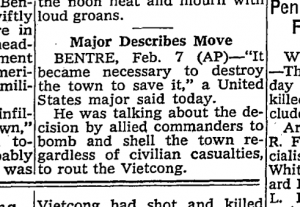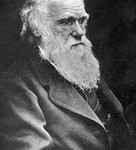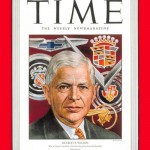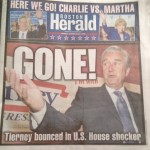
Boston Herald cover, 10 September 2014
Today’s
Boston Globe and
Boston Herald each used the front page as a take-off point for coverage of
Seth Moulton’s upset primary victory, which will end Rep. John Tierney’s 18-year stint in Congress. (The
Herald could not resist calling Tierney’s time on the Hill a “nine-term reign,” perhaps overstating his influence just a little.)
The coverage reveals an inescapable journalistic fact: Quoting people accurately is difficult.
Both the Herald and Globe went to the same portion of Moulton’s acceptance speech at the Veterans of Foreign Wars hall in Salem for the first quotation of the respective stories. Both started the third paragraph (of the printed version I bought in Winchester) with the same excerpt:
The Herald: “Our win tonight says two things. First, that we’re fed up with gridlock in Congress. Seriously fed up. And, second, that voters want to keep this seat blue.”
The Globe: “Our win tonight says two things. First, that we are fed up with the gridlock in Washington. And second, that voters want to keep this seat blue.”
So, what’s different in these presentations, each of which is less than 30 words?
1. The Herald uses the contraction “we’re” and the Globe has “we are.”
2. The Herald says “gridlock in Congress”; the Globe says “gridlock in Washington.”
3. The Herald says “Seriously fed up”; the Globe omits the phrase.
Let’s go to the tape, which can be found on the web site of New England Cable News:
On the NECN site, the video of Moulton’s quoted portion begins at the 1:18 mark and ends at 1:35. From this we can see exactly what Moulton said and evaluate the reporing.
1. The contraction. He said “we are,” as the Globe reported, not “we’re.” OK, this is not all that surprising. Moulton majored in physics while at Harvard. Scientific equations do not lend themselves to contractions. I’m glad the Globe preserved the tone. Is it a big deal that the Herald contracted the phrase, giving Moulton a more informal tone? Let’s, er, let us say it’s, er, it is not all that big a deal. At least the Herald did not go so far as to Brooklyn-ize Moulton with a “…weez [contraction of ‘we is’] fed up with the gridlock…”
2. The gridlock. Moulton said “gridlock in Washington,” so score one for the Globe. There’s no reason for the Herald report to have “Congress,” although the two words are interchangeable to many these days. Does Congress=Washington. No. Ask anyone living in Anacostia.
3. The “fed up” phrase. Here, the Herald got it right. Moulton did say “seriously fed up.” The trouble for any reporter at the event is that the comment is very hard to hear. The listeners devoured Moulton’s “we’re fed up with gridlock in Washington” comment. Yes, they ate it up. And they hungrily erupted in cheers. This which overwhelmed Moulton’s three-word phrase. I heard it on the tape only because I was listening for it. I understand how the Globe reporter missed it. But the Herald reporter, to his or her credit, got it.
Does any of this matter? None of the changes are damaging, really. They all likely fall in the “no harm, no foul” category. But changing a word (Washington to Congress) and omitting a phrase are dangerous transgressions. The double-quote mark tells the reader that this is EXACTLY what was said. It’s hard to get it right sometimes. But it’s worth the effort.



